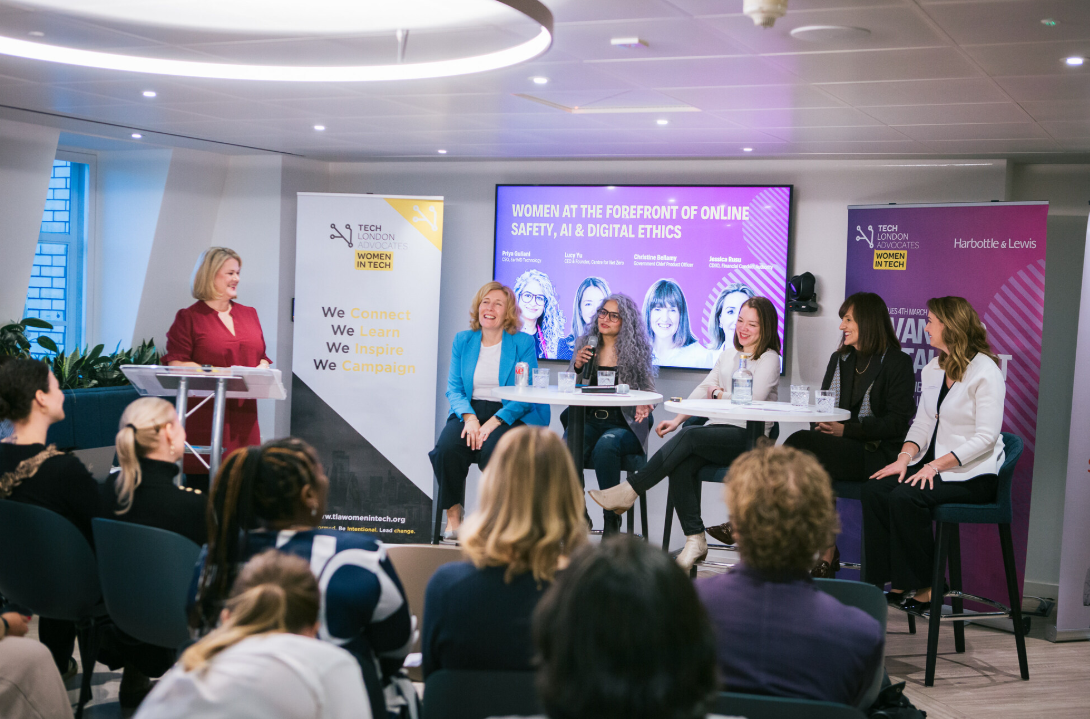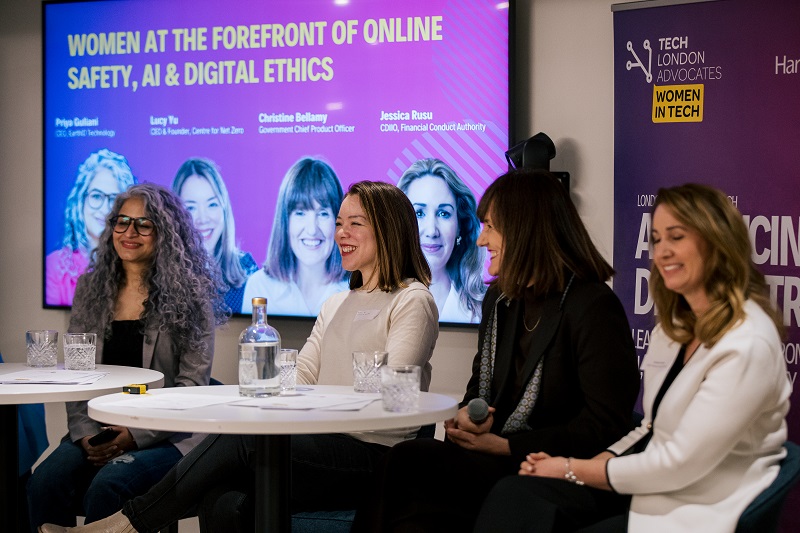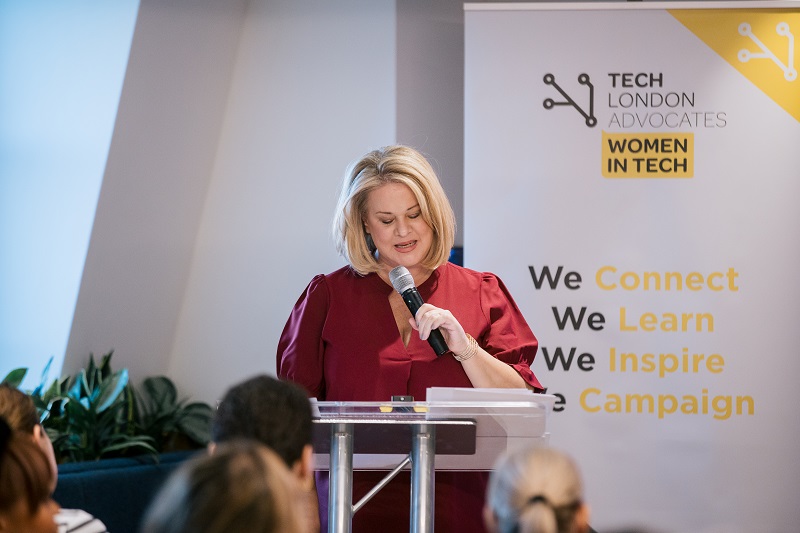At the recent TLA Women in Tech event, one message came through with quiet urgency: digital trust is no longer a side conversation. It’s the foundation upon which tomorrow’s services, strategies, and societies will rest. Whether you work in regulation, develop digital systems, or shape workforce strategy, this isn’t just a tech trend, it’s a leadership issue.
The evening began with a sentiment that resonated across the room:
“I don’t know about you, but I’ve felt disoriented by the sheer speed of technological change—especially in AI. Even more than during the Millennium, this is moving at breakneck speed and scale.”
That feeling of acceleration is something many in leadership are grappling with. Yet amidst the disruption, there is also clarity. If we want to lead well through this next phase, we must bring intentionality to how we govern data, build products, protect users, and invest in our people.

Regulation is no longer reactive
Jessica Smith from Ofcom made it clear: the UK’s Online Safety Act is not a future consideration, but a present reality.
With enforcement powers that include substantial fines and even platform removal, the regulator is setting a precedent for accountability and cultural change. But the challenge is broader than legal thresholds. Much of what harms users—particularly women and girls—falls between the cracks of legality and lived experience.
As one speaker put it, “Not all abuse is illegal. But it’s still real. And often deeply damaging.”
For businesses, we heard how this should prompt reflection beyond policy compliance. Are your systems, platforms and cultures truly safe by design—or merely safe by regulation? Consider how your organisation audits its own risk exposure not just from a legal standpoint, but from a social and reputational one. The real question isn’t just whether your business is compliant, but whether it is trusted.

Trust and identity: the data shift already underway
We heard from the room how the traditional model – where data is harvested, stored, and monetised centrally- is losing its legitimacy in the eyes of users. Several speakers pointed to a future where identity is decentralised, user-controlled, and consent-based. Blockchain technology, privacy-preserving verifications, and digital wallets are no longer abstract concepts but fast becoming expectations.
“Your data should be yours. You should decide what to share, when, and with whom—and be able to revoke that access just as easily.”
If your business relies on data, now is the time to examine not just what data you collect, but why. Are you minimising data collection by design? Have you built in transparency at every user touchpoint? Is your consent model understandable by a 15 year old or only your legal team? Forward-thinking organisations will begin investing in systems that give users greater control, rather than relying on outdated models of implicit capture. Those who do will be better positioned to earn long-term trust and avoid the backlash already brewing.
Digital services must move from functionality to utility
From government to enterprise, the conversation is moving beyond putting services online. It’s about making them work intelligently, contextually, and equitably.
As one senior leader noted, “The next phase of digital government must move from building websites to building relationships.”
More broadly businesses should consider this a wake-up call too. The challenge remained in the room – Are your digital services responsive to user needs, or merely digitised replicas of legacy processes? Are you designing with real-world accessibility in mind, or only with efficiency targets in sight?
One powerful example came from a local government leader who highlighted the risks of poorly designed automation: “If your chatbot can’t understand a regional accent, then it’s not inclusive—no matter how efficient it is.”
For those leading service design, it was a timely reminder: efficiency and equity should go hand in hand. Don’t fall into the trap of chasing cost savings at the expense of human experience. Instead, invest in testing digital tools with diverse users, and keep inclusion central not peripheral to innovation.

Talent strategies must catch up with technology
Perhaps the most transferable insight for business leaders came in the form of a gentle provocation:
“It’s not just about knowing the tech—it’s about knowing what to ask of it.”
As AI, machine learning and automation increasingly shape the way work is done, the skills an organisation will need are evolving fast. It was clear from the room that technical fluency matters but so does ethical judgement, regulatory understanding, and an ability to engage with nuance. If your L&D strategy is still focused solely on tools and certifications, it may be time to expand your scope. Build programmes that focus on digital ethics, critical thinking, and AI literacy. Create space for cross-functional dialogue between technologists, policy leads, legal teams and user experience designers. How are you ensuring digital is core to your strategy and understood at Board – in the form of advisory groups? Or Non-Executives with a digital background? (A discussion we recently held at our recent webinar ‘Unpacking the Role and Value of a Digital NED on an NHS Board‘)
A final thought: what kind of organisation do you want to be?
Throughout the evening, one question hovered in the background: what kind of digital society are we building and what role do we want our organisations to play in shaping it?
Trust, once lost, is hard to regain. But trust, when deliberately designed and consistently delivered, can become your greatest differentiator. Now is the time to reflect.
“This isn’t just about innovation. It’s about what kind of society we want to live in.”
And, just maybe, what kind of leaders we choose to be in shaping it.
Written by Sarah Luxford, Partner in our DDaT practice and founder of Tech London Advocates Women in Tech community.
Are you ready to make a difference? Whether hiring or looking for your next executive digital, data or technology role, find out more here Digital, Data & Technology – GatenbySanderson